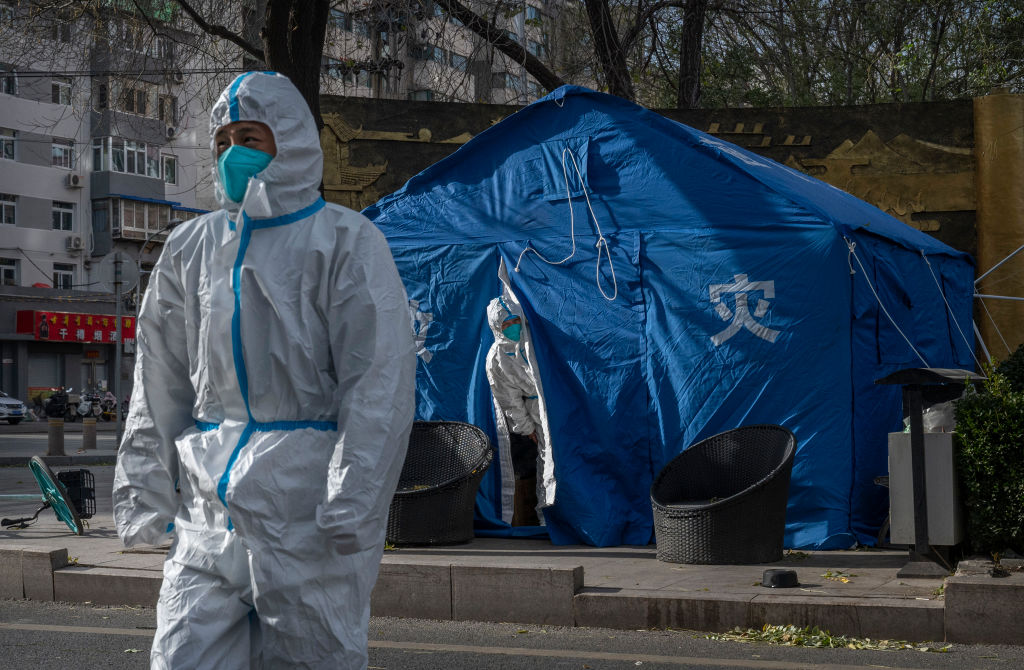
China has lately experienced its largest and most politically charged protests since the pro-democracy movement in 1989 ended in a massacre by government forces on Tiananmen Square. The recent social eruption should not be surprising; frustrations over the Chinese government’s rigid zero-Covid policy have been brewing for a long time. Yet the ruling Chinese Communist Party apparently did not see the protests coming, despite operating an all-pervasive and deeply intrusive surveillance apparatus. Now, the central government has announced that it will accelerate the shift away from zero-Covid with a broad easing of restrictions. After publishing a set of 20 guidelines for officials to follow last month, it has now cut the list down to 10.
Faced with the protests, President Xi Jinping’s government eschewed brutal Tiananmen-style suppression of the demonstrations. While large numbers of police have been deployed to protest sites, they have avoided bloody ‘crowd-control’ tactics and mass arrests, preferring instead to identify and intimidate protesters using cell-phone tracking technology. But CCP leaders also warned that a ‘resolute crackdown’ was coming. According to Chen Wenqing, the CCP’s newly installed domestic security chief, the authorities will target ‘infiltration and sabotage activities by hostile forces’ and ‘illegal and criminal acts that disrupt social order’.
While China’s government has sent a relatively clear message about the fate of the protests, its stance on zero-Covid has been hazy and inconsistent, with restrictions being relaxed only in some cities, such as Guangzhou, Hangzhou and Shanghai. In recent days, the phrase ‘dynamic zero-Covid’ (dongtai qingling) seemed to disappear from state-run media.
Still, uncertainty reigned, because no senior Chinese official had publicly stated that the zero-tolerance approach is being fully abandoned. Instead, Vice Premier Sun Chunlan, who is overseeing the pandemic response, has acknowledged the ‘weakening severity of the Omicron variant’ and said that the fight against Covid-19 was entering a ‘new phase’.
With little direction from above, local governments have been adopting widely different policies. For example, though Shanghai’s municipal government announced an easing of some rules—as of 5 December, a negative Covid test was no longer be required to take public transportation or visit parks—it has again shut down the recently reopened Disneyland.
Chinese leaders’ refusal to take a clear stance on zero-Covid is pure politics. The central government has been reluctant to take responsibility for the decision, because policymakers do not want to be blamed for whatever surge in infections, hospitalisations and deaths follows a reopening. The new guidelines may be looser than what came before, but they do not necessarily represent an end to zero-Covid.
Local officials have been playing politics too. If they have been relaxing pandemic restrictions, it’s because they believe that doing so will serve their interests well enough to merit the risk to public health. If they have stuck with harsher restrictions, it reflects their calculation that the immediate hit to their popularity would be dwarfed by the impact of becoming a scapegoat for any wave of cases.
But perhaps the clearest and most worrying evidence of the politicisation of public-health decisions is the Chinese authorities’ refusal to approve the more effective mRNA vaccines produced by Western companies. Though these vaccines would help to make the departure from zero-Covid safer, especially for under-vaccinated elderly Chinese, China’s leaders apparently view the use of Western vaccines as a blow to national pride and an admission of past mistakes.
Looking ahead, China’s leaders can probably count on the security forces to snuff out new protests, thereby allowing the CCP to reassert control and downplay people’s frustrations. But the reluctance to devise a comprehensive and systematic exit strategy from Covid—and to take responsibility for its outcomes—could result in China experiencing the worst of both worlds.
If there’s still confusion over Xi’s commitment to zero-Covid and the central government’s reopening plans, that will produce a chaotic response at the local level and the continued enforcement of ever-changing pandemic restrictions will strain state attention and resources, while stoking popular frustration. At the same time, a loosening of restrictions that is not accompanied by effective public-health measures—such as a rapid mass immunisation campaign using Western vaccines—will send infection rates soaring, overwhelming China’s healthcare system.
Xi needs to act fast to avert this outcome, not least by ordering the immediate approval and import of mRNA vaccines. Such a move would demonstrate not only political courage but also political savvy, because it would go a long way towards repairing the damage done to Xi’s image by the anti-lockdown protests that rocked his government at the end of last month.

